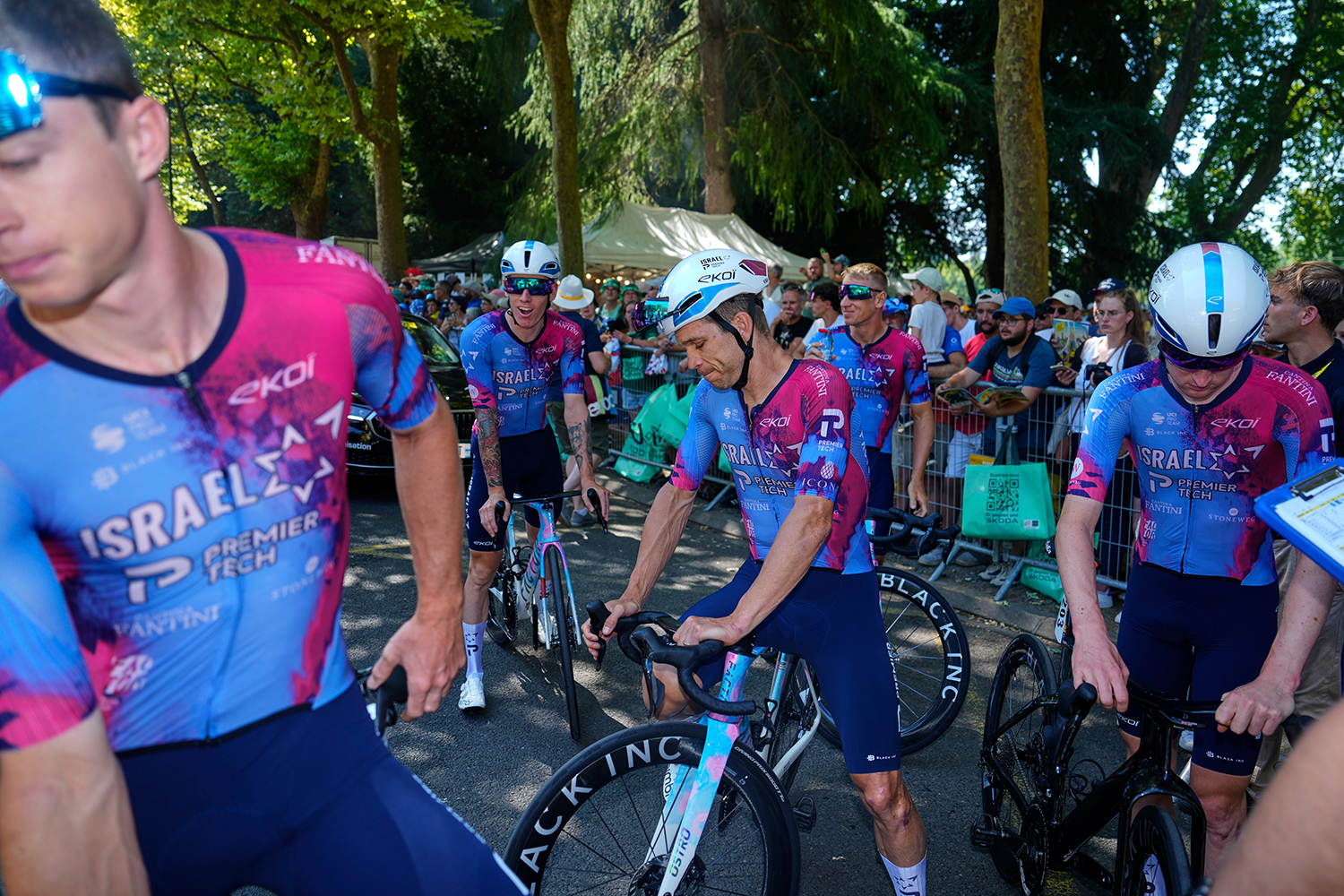Former Israel-Premier Tech rider Alessandro De Marchi has addressed the cycling world’s silence about the ongoing war in Gaza, saying that he would no longer feel comfortable riding for the Israeli team.
The Israel-Premier Tech team were founded in 2014 and first raced in the Tour de France in 2020. They have won three stages overall, although none this year. Last week, a demonstrator was arrested after running on to the final straight of the 11th stage wearing a T-shirt reading “Israel out of the Tour” on the front. Anti-Israel protesters were also active during stage 17.
Speaking exclusively to The Observer, De Marchi, who is retiring at the end of the season after joining Team Jayco–AlUla in 2023, said that he is “happy and relieved” to not be riding for Israel-Premier Tech, having spent two years at the team between 2021 and 2022.
“I would have really struggled to be there now and been in great difficulty,” the 39-year-old Italian said. “I won’t criticise anyone riding there because everyone is free to decide, but right now I wouldn’t sign a contract with Israel. I wouldn’t be able to manage the feelings I have, to be able to be involved in something like that.”
Israel-Premier Tech are not a state-owned team, although they have received a small amount from the Israel’s ministry for tourism.
The team are funded by the Canadian-Israeli billionaire Sylvan Adams and American businessman Ron Baron. Adams has said that the team can promote a “more realistic vision” of modern Israel, calling his riders “ambassadors for the country”.
This year, Adams has taken on an increasingly political role, attending Donald Trump’s inauguration as US president in January. He has been dubbed Israel’s ‘unofficial ambassador’ and in June encouraged Trump to attack Iran, days before he did so.
The perilous financial state of cycling, allied to most riders only having short sporting careers, means that De Marchi understands why riders don’t have qualms about signing for Israel-Premier Tech. He says that the war in Gaza is typically not discussed among riders.
“At the time [in 2021] they gave me a chance to keep riding at the top level, they gave me a good contract and salary, and I was looking at the house I had to build and my family. Other riders are the same,” he said.
“Of course now I am older and able to reflect in a way I didn’t five years ago, and I appreciate that in life there are times that, though it may be hard, it’s better to follow your morals. Right now I would do things in a different way.”
Newsletters
Choose the newsletters you want to receive
View more
For information about how The Observer protects your data, read our Privacy Policy
Discussing his time with the team, De Marchi, who has spent time in the past year actively reading and learning more about the history of the conflict, said: “Back then I really understood very little about Israel. The people behind the team had a desire to show off the beauty of the country – that was a clear policy of the team – but there were never any feelings against Gaza or Palestinians, or reference to the occupation in the West Bank.
“There was a lighter propaganda, let’s say, where the view of Israel was projected.
“You could feel it was a complex, divided society. But you could also see that there was no space to discuss Gaza.”
Despite sporadic small protests against the Israeli team at various races in the cycling calendar, on the whole cycling has kept mute on the war, insisting that sports and politics don’t mix. De Marchi, however, would like the UCI to at least address the war – even if it’s unlikely that it would take the same measures that it took against Russia at the start of the Ukraine invasion, which led to the sport’s governing body banning Russian riders from all the events in the UCI international calendar. The ban was subsequently reversed in 2023.
“We need to see real action from our governing body to position the cycling world on the right side and to show awareness of what’s going on in Gaza,” De Marchi said. “We have to show that as a cycling world we care about human rights and international law violations.”
The Observer contacted Israel-Premier Tech, who said they didn’t comment on a “personal opinion.”
Photograph by Mosa’ab Elshamy/AP Photo
